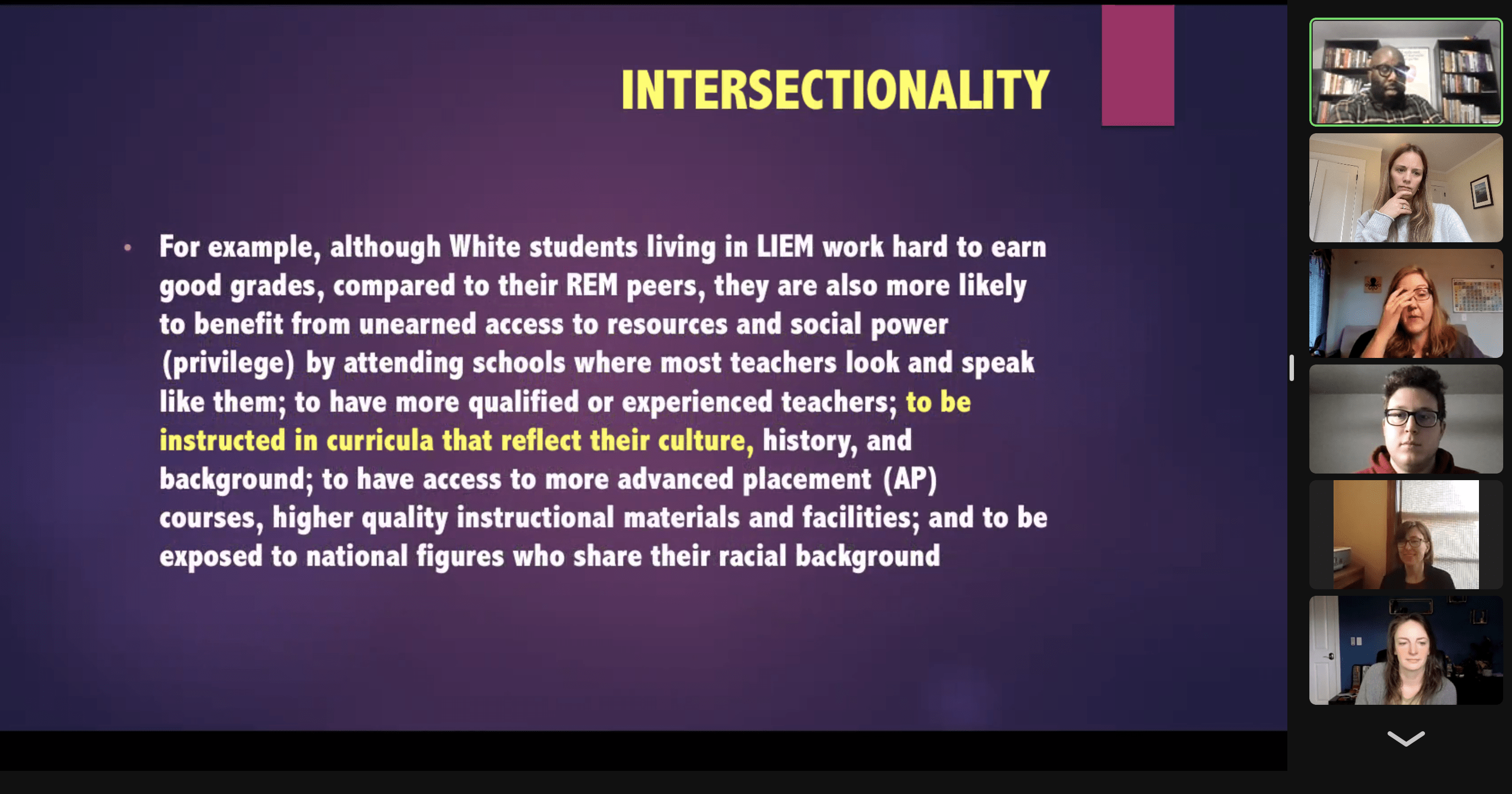Earlier this month, THFers gathered for our 16th annual Winter Retreat. This is a laid-back day of professional development where clinicians enjoy amazing sessions in the comfort of their own homes. This year, we hosted Dr. Charles Barrett, a justice-oriented school psychologist who specializes in socially just practices and policies that lead to equitable outcomes for marginalized children, families, schools, and communities. Charles also advocates for effective cross-cultural assessment of racially and ethnically minoritized students.
Our morning session focused on Assessing Racially and Ethnically Minoritized Students, where Charles shared comprehensive, evidence-based, and practitioner-friendly assessment models to effectively differentiate between language differences and disabilities for English Learner students and Attention Deficit Hyperactivity Disorder (ADHD) for Black students. Additionally, he shared how to effectively design culturally responsive assessment batteries to assess racially and ethnically minoritized (REM) students’ cognitive abilities, academic skills, and social, emotional, and behavioral functioning. In the afternoon, Charles shared information about Foundational Knowledge for Achieving Equitable Outcomes, where Charles discussed how privilege, implicit bias, intersectionality, and inclusion are related to social justice in schools and school systems. He gave specific attention to disparities in achievement and discipline (i.e., suspension and expulsion).
Not only is Charles an excellent speaker, but he provided great presentations and quality information around really hard topics.

Some of our takeaways from the day:
- Knowledge does not equal intelligence. Many cognitive tests we use are the measure of achievements, not the measure of intelligence.
- Privilege is what you don’t have to think or worry about. It’s a system of unearned advantages that people enjoy by virtue of their association with someone else. Charles shared his own personal experiences with privilege, which were poignant and powerful.
- Implicit bias is a symptom of racism. Framing can be very powerful, and thinking of implicit bias and acknowledgment of it, along with privilege, are great first steps to having bigger discussions around structural racism. I also would have thought that SES was a bigger factor for school funding per student. It’s very interesting to see research that shows that even low-poverty, non-white schools still receive less money per student than high-poverty, white schools.
- Know the cultural and linguistic biases of the assessments you use. The Culture-Language Interpretive Matrix (CLIM) is a good tool for looking at the cultural and linguistic loads of various standardized tests that we regularly use.
- BICS (Basic Interpersonal Communication Skills) and CALP (Cognitive Academic Language Proficiency) are excellent measures for English Learners to gain a greater understanding of a child’s development of English language skills.
You can follow Charles on Instagram. Also, be sure to check out his website, where you can access his free podcast.





